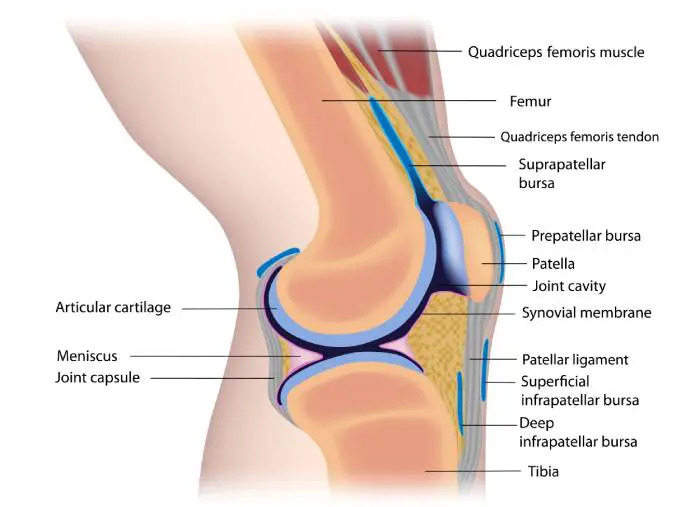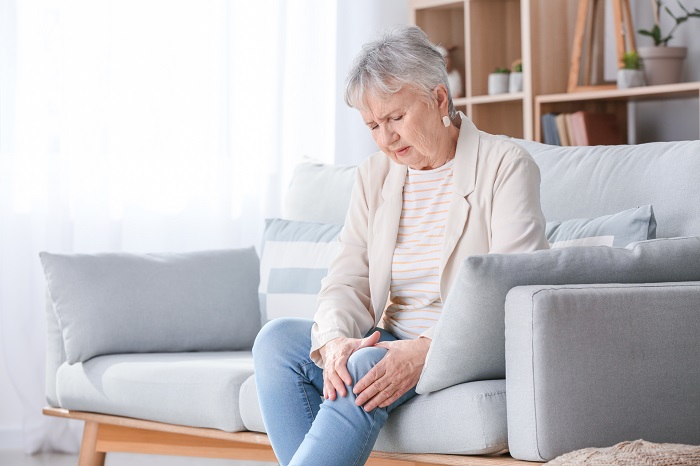Phone: +44 (0)20 8492 1600
Need help or have a question?
Contact us at: [email protected]
Old or young, knee pain can seriously disrupt your life and make it difficult for you to walk, run, and exercise. Sometimes the pain will ease by itself, but often you will need to find the cause of your pain before it can be treated. In this article we will discuss the various causes of sore knees, how it can impact your life, and simple remedies to ease your pain.
Knee pain is often associated with symptoms such as knee stiffness, swelling, and the feeling of your knee catching or giving way. Sprains and bruises are often caused by sports injuries and heal within a few days. Other common causes of knee pain include:

The ligaments in your knee can become sprained or torn during sports injuries and blows to the knee. Symptoms depend on which ligament is injured:

Your knee plays a vital role in walking, running, and exercise. It takes the full force of your weight and allows you to twist, turn and jump. Knee pain can range from a minor hassle to a life-changing event. Many of the conditions which cause knee pain are associated with stiffness and difficulty in bending your knee.
As well as problems with walking and bending your knee, the pain alone can make your life miserable. Knee pain is often worse at night and the resulting loss of sleep may be disastrous for your mental health.
With some injuries, continuing to put weight on your knee can cause lasting damage and place even more limits on your life. If you have pain that isn’t improving, or have suffered an injury, it’s important that you book an appointment with your GP to get your knee evaluated.
If you are suffering from a simple bruise or sprain, there are several simple measures you can take to relieve your sore knees:
If you have seen a health professional due to severe or ongoing knee pain, they may recommend several treatments for knee pain:
Podiatry. If you have problems with your soles or arches, a podiatrist can assess the way you walk and make corrections with insoles and arch support.
Home exercises. Your GP may suggest exercises which you can do at home to help problems with your leg muscles.
Physiotherapy. You may require a supervised exercise program to correct any muscle imbalances that you might have.
Steroid injections. For some causes of knee pain, an injection of corticosteroids may ease the pain and swelling in your knee.
Surgery. If your knee pain is caused by a structural problem, your doctor may refer you to an orthopaedic surgeon to consider whether having an operation will fix the problem.
Flat feet and other foot problems may cause knee pain as they change the way that you walk causing poor weight distribution across your knee. Profoot has a number of insoles and arch support products which help you walk without putting added pressure on your knees.
Gel Max heel pain relief cushions provide all day comfort for your feet, no matter what level of activity they are put through. The advanced gel and Poron® Materials design cushions every step and helps relieve heel, knee and lower back pain associated with foot impact and heel strike.
Profoot Heel & Arch Support Pain relief orthotics helps with arch fatigue by adding a supportive shock-absorbing cushion. By keeping your bones in a natural position, you can correct your gait – preventing and easing your knee pain.
This article was written by Dr. James Philip MBChB who graduated from the University of Manchester in 2015 and went on to train in hospitals across the North West of England. He has experience working in both hospital medicine, and the community, and played his part as a front line worker on the COVID-19 wards. He now works as a freelance medical writer and medical education entrepreneur.